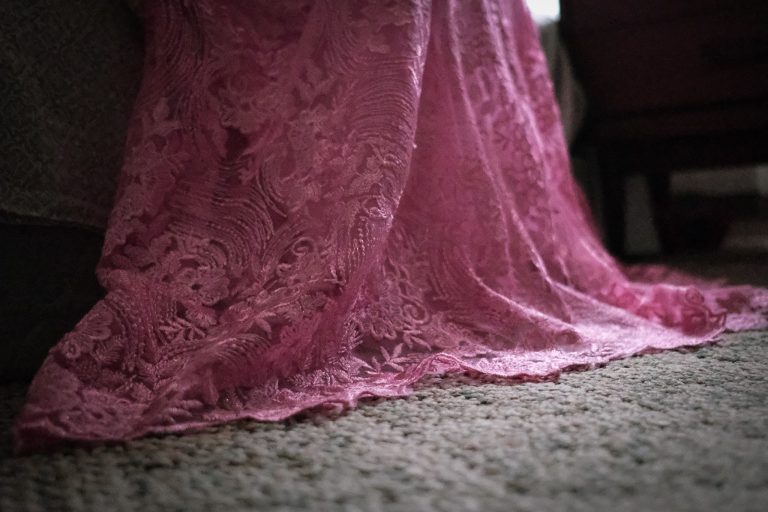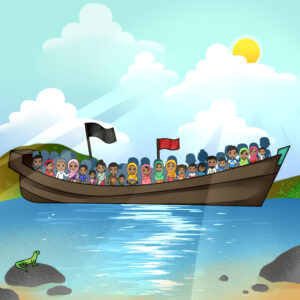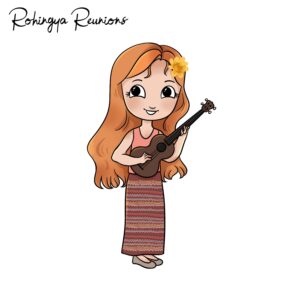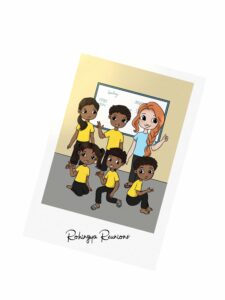“While I wish we could snap our fingers and solve the problem instantaneously, it’s going to take a long time to overcome these education barriers that the Rohingya women face. But I have full faith that girls like Hasina are the real world changers.”

If I was Still in Myanmar
It’s just past midnight and I’m lying in bed, snuggled up next to 15-year-old Hasina and her younger brother. We all fit in one bed, covered in fluffy blankets to keep us warm during Wisconsin’s February nights. She props her head against the bed post, looks at the wall in front of her, then looks at me.
“Sophie, you know if I was still in Myanmar right now, I would be married.”
She looks back at the wall in front of her. “It’s weird to think that. But instead I get to go to school.” She looks at me, smiles, puts her head on her pillow, and falls asleep.
I lay in bed thinking about what she had said. It was powerful. It was true. One single moment in her life – the boat that took her to the wrong place – changed the future she thought she would have. She’s not married. She’s in high school. And she is going to change the world.
We talk a lot about the impact of educating one girl. We praise women like Malala, who have put their lives at risk to advocate for girls education worldwide. We read the staggering numbers of girls worldwide who do not go to school. We hear stories of girls being married at the young age of 14, 12, and even 10. We hear about girls who cannot go to school on the weeks they have their period. These stories continue to happen – and the COVID pandemic has only exacerbated the situation. I’ve spent time in communities where a girl’s education is less prioritized. I’ve also seen women in these communities who fought against the grain to get themselves educated. And I’ve seen the impact those girls have made.
I’ve spent the past several months developing a curriculum made by girls, for girls. The plan is to hire educated Rohingya girls to implement teacher trainings with my book among the Rohingya community. The problem? There are so few educated Rohingya girls in the community who can help. Those who are educated already are overloaded with work from other NGOs. They have overrun their capacity.
There is such a shortage of educated females. It’s only fitting that I can’t even find an educated Rohingya woman to lead my girls’ education program. This shows just how great the need is. And it’s not just a problem I’ve been facing, I have multiple colleagues who face the same challenges.
It’s sad to say, but I can’t really do much about it. Sure, I can design books and share them. But I’m not the one who is making the impact in the community. I’m not the girl that the Rohingya girls look up to. The Rohingya girls will look up to girls like Hasina; the girls from their own community who were given access to education elsewhere. Hasina can use what’s given to her and bring it back to these marginalized women of their community.
While I wish we could snap our fingers and solve the problem instantaneously, it’s going to take a long time to overcome these education barriers that the Rohingya women face. But I have full faith that girls like Hasina are the real world changers. They are the ones who have overcome obstacles and can serve as inspiration to the girls in her community. They’re the names the girls will look up to and say, “If Hasina can do it, so can I.”
Some day, this Rohingya community will be flooded with educated Rohingya girls. We’ll be overwhelmed with job applications from qualified, educated Rohingya women. But for now, it’s my role to encourage girls like Hasina to continue pursuing their education so that they can be the real world changers. They will be the ones to show the girls that one pen, one notebook, and one teacher can change the world.



